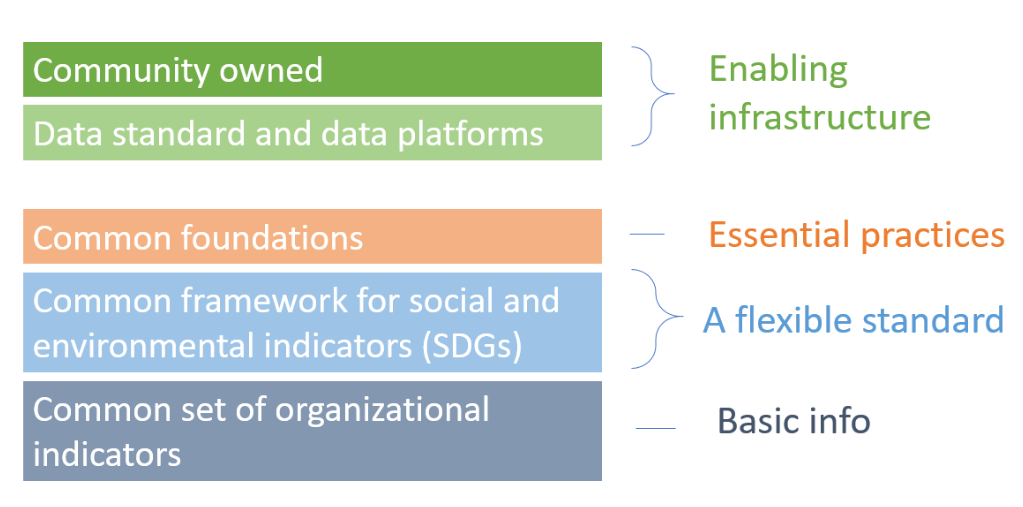This blog is the second of a series which highlights collaborative projects in Canada that have sought to make sense of impact measurement for social enterprises and other community-based organizations, and to advance new tools and common methods.

The Common Approach to Impact Measurement is a community of non profits, social enterprises, grant makers, investors and academics “building a better way to measure social impact.” It emerged from Ontario’s Social Enterprise Strategy 2016-2021 that led to the creation of an Impact Measurement Task Force. The task force resulted in a report which recommended a ‘common approach’ to impact measurement that is intended to provide a foundation for sector-wide measurement, and a reporting methodology that social enterprises can build upon and continue to evolve through insights and lessons learned. The Common Approach to Impact Measurement, based at Carleton University, was established to advance this agenda.
They have been working to articulate the Common Approach by convening stakeholders and defining the following: essential practices, flexible indicator standards (that relate social and environmental indicators to UN Sustainable Development Goals), and a community-owned enabling infrastructure that would make it easier for social enterprises to manage data and learn from each other. In addition, a common set of organizational indicators, is also being defined.

They have now released 25 Common Foundations (essential practices) grouped in 5 areas:
- Plan your intended change
- Use performance measures
- Collect useful information
- Gauge performance and impact
- Report on results
Other work is on-going. You can find a recent update in this Powerpoint presentation.
The Common Approach seeks to strike a balance between the social enterprise sector's need for some common language and methods (to facilitate learning and encourage additional investment), with the need for measurement to be flexible and supportive. For instance, they have been working to relate the UN's Sustainable Development Goals to the work that social enterprises are doing in their communities, and making it more possible to identify and use indicators that can provide evidence that speaks to those goals. They are currently seeking to broaden their reach beyond Ontario, and Demonstrating Value is exploring opportunities to support their work.
